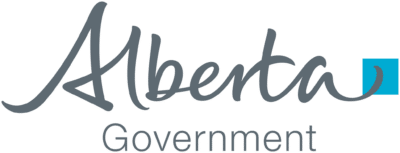Am I Personally Responsible for My Business Debts?
When you operate a business, it is important to know which, if any, debts are the responsibility of the business owner and what your liability is.
Setting Yourself Up For Success
Did you know that the legal structure of your business impacts whether you’re personally liable for business debts?
When you operate a sole proprietorship, there’s no legal distinction between you and your business. As a result, all your business debts are your personal responsibility. If you operate a sole proprietorship, you will include your business income in your personal income tax return.
When you open a corporation through your lawyer or by yourself at a registry office, this creates a business that is a separate legal entity from you. You will need to list individuals in the role of director and shareholders for the corporation.
Signing in Your Personal Capacity As a Director of a Corporation
As a business owner, you will sign documents, including loan agreements, on behalf of your business. Your signature on business documents as the business owner is signed in your capacity as an officer of the corporation. You can also sign in your personal capacity, which means you are taking personal responsibility for whatever it is you’re signing for (in addition to the business). Before considering entering into a joint debt agreement, check out this article to learn more.
Ensure that you read the signature line and all agreements before signing to ensure you understand what you are agreeing to and in what capacity, whether it’s corporate, personal, or both. If you’re unsure whether you’re signing in your personal capacity, ask for time to review the documents and seek legal counsel to help you clarify the terms so that you make an informed decision. For more information about joint debts, check out some additional information here.
How To Avoid Personal Responsibility for Corporate Debts
- Consider your business structure and how it will impact your personal finances. Talk to your accountant if you aren’t sure which option works best for you.
- Request loans and lease agreements that do not require a personal guarantee. You may not be able to get as much money, but you will be protecting yourself personally for the worst-case scenario.
- You can request a limited personal guarantee that caps the amount that you would personally be responsible for. For example, if you’re getting a $250,000 loan, the personal guarantee could be capped at $100,000.
- Ensure that you thoroughly understand the terms of your contract before signing and never click “apply all” when signing a document with a digital signing application. Make sure you read the document thoroughly, so you understand what you are agreeing to.
- If you’re in the role of Director, stay connected and ensure corporate debts are being paid on time. As a director, even if you are not actively involved, you could be personally assessed for statutory director’s liabilities.
Knowledge is Power
By understanding your business’s legal structure, ensuring you know how you will be personally impacted by your business debts, and doing what you can to limit your personal liability will help you make decisions when it comes to your business’s financial future.
Rebecca Frederick
Principal Owner, Frederick & Company Ltd.
Rebecca started Frederick & Company Ltd in 2014 to reshape the experience of people facing financial distress. At Frederick & Company Ltd., she made sure the focus was on educating the people that have come to us for help to ensure the focus was always on the individual and how we could help them, not ourselves.
LinkedIn | Instagram | Facebook | Website





